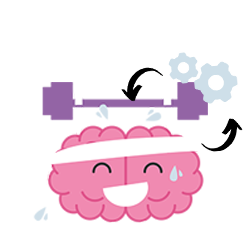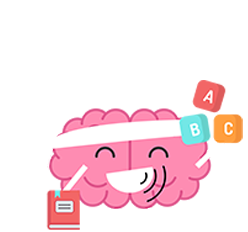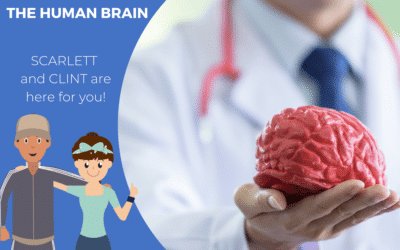Memory disorders are common problems faced by many people, and can have a significant impact on daily life. In speech therapy, professionals are often called upon to assess and manage memory disorders in patients of all ages. In this article, we’ll explore the different types of memory deficits, the specific rehabilitation approaches used in speech therapy and strategies for managing memory disorders. Whether you’re a healthcare professional or someone looking for information on memory disorders, this article will provide you with valuable tips for understanding and tackling these issues.
Types of memory impairment in speech therapy
Memory disorders in speech therapy can manifest in different ways, and can affect various aspects of memory.
Here are some common types of memory deficits that are frequently encountered:
-
Episodic memory
Episodic memory concerns memories of specific, personal events. People with episodic memory disorders may have difficulty remembering the details of an experience or retracing the chronology of events.
-
Semantic memory
Semantic memory is linked to general knowledge and abstract concepts. People with semantic memory disorders may have difficulty recalling information such as facts, definitions or vocabulary.
-
Working memory
Working memory is responsible for the temporary retention of information and its mental manipulation. Individuals with working memory disorders may have difficulty concentrating, following instructions or performing tasks involving a high cognitive load.
-
Prospective memory
Prospective memory concerns the ability to remember to perform actions in the future, such as taking medication at a specific time or completing a planned task. People with prospective memory disorders may have difficulty remembering their obligations or carrying out scheduled activities.
Working memory
- Immediate information processing
- Mental operations
- Information handling
- Search for a solution
Semantic memory
- Memorizing knowledge
- Vocabulary memorization
- Creating abstract concepts
- Interpreting gestures and symbols
Autobiographical memory
- Memorizing autobiographical knowledge
- Creating environmental contexts
- Mental representations
- Memorization of sensory and perceptual details
Specific rehabilitation approaches in speech therapy
Speech therapy offers a range of rehabilitation approaches to help people with memory disorders improve their cognitive abilities. Here are some of the methods used:
-
Cognitive remediation
Cognitive remediation aims to strengthen impaired cognitive functions using targeted exercises. Patients take part in activities that stimulate memory, attention, problem-solving and other cognitive skills. These exercises are adapted to the individual needs of each patient.
-
Spaced repetition
Spaced repetition is a technique that involves regularly reviewing the information learned at specific time intervals. This method reinforces memory consolidation and improves long-term information retrieval.
-
Mnemonic techniques
Mnemonic techniques are strategies used to facilitate the memorization and retrieval of information. They include methods such as the use of mnemonics, the creation of mental associations and the use of recall structures.
I’d like to share with you some valuable strategies that can greatly improve your ability to memorize and retrieve information. As a speech therapist, I’ve seen time and again how using mnemonic techniques can transform your learning experience and help you overcome many challenges.
- Mnemonics: Mnemonics are simple but powerful tools to help you memorize information. For example, the acronym method, where you create a word from the first letters of the items to be remembered, can be incredibly effective. For example, to memorize the planets of the solar system: My (Mercury) Very (Venus) Easy (Earth) Method (Mars) Just (Jupiter) Speeds (Saturn) Up (Uranus) Nothing (Neptune).
- Mental associations: Another fantastic strategy is to create mental associations between information to be memorized. Imagine images or stories related to what you’re trying to remember. The more unique or unusual the associations, the more memorable they are. For example, to remember a shopping list, associate each item with a specific scene or person in your mind.
- Recall structures: Use reminder structures to organize information. Create categories, ordered lists or diagrams that help you visualize how elements are connected. For example, if you’re studying history, organize events chronologically or by theme.
- Spaced repetition: To strengthen your long-term memory, use the spaced repetition method. Instead of memorizing everything in a single session, review what you’ve learned on a regular basis. This will help you consolidate your memories.
- Practical approach: Apply the information you learn to real-life situations. The more you use what you’ve memorized, the more it will stick in your memory.
- Stress management: Stress management is crucial for optimal memory. Practice relaxation, meditation and exercise to keep your brain healthy.
Remember, one size does not fit all. Experiment with these techniques and find the ones that work best for you. Be patient and persevere, because memory improves with practice.
-
The use of visual aids
Visual aids, such as calendars, to-do lists, charts and diagrams, can help people with memory problems to organize themselves better and remember important information. These visual aids serve as visual reminders of key activities and information.
Managing memory disorders in everyday life
In addition to specific speech therapy, there are also strategies for managing memory disorders that individuals and their loved ones can implement in their daily lives. Here are a few useful tips:
-
Organizing and structuring the environment
Creating an organized, structured environment can make memory easier. Use labels, binders, storage boxes and calendars to help find and organize information.
-
Using reminders and notes
Using visual and written reminders, such as sticky notes, alarms or reminder apps on a phone, can help you remember important tasks and appointments.
-
Regular memory training
Regular memory training is essential to maintain and improve cognitive abilities. This can include memory games, puzzles, stimulating reading and activities that require cognitive thinking.
Use fun memory-training applications
Thanks to fun applications on your smartphone or tablet, you can carry out memory exercises by choosing the cognitive functions you want to target. Here we present 3 programs to match your skills. With these apps and our age-appropriate coaches, memory training becomes a personalized, engaging and beneficial experience. Whatever your age, you can harness the potential of your memory while having fun and looking after your mental and physical well-being.
COCO THINKS and COCO MOVES is a memory training application designed to meet the cognitive needs of users. Educational games offer a playful learning experience where they can strengthen their short-term memory while having fun. COCO THINKS’ stimulating challenges and interactive games encourage children to develop their memory, concentration and logic in an entertaining way.
For adults looking to improve their cognitive skills, CLINT is the ideal coach. With personalized advice and strategies to optimize the training, CLINT accompanies adults on their journey towards a more efficient memory.
Finally, for our precious seniors, SCARLETT is there to guide them on their memory-boosting journey. SCARLETT’s games and exercises are designed for seniors, promoting coordination, memory and general well-being.
COCO THINKS
and COCO MOVES
An educational and sporty version
for children from 5 to 10 years old
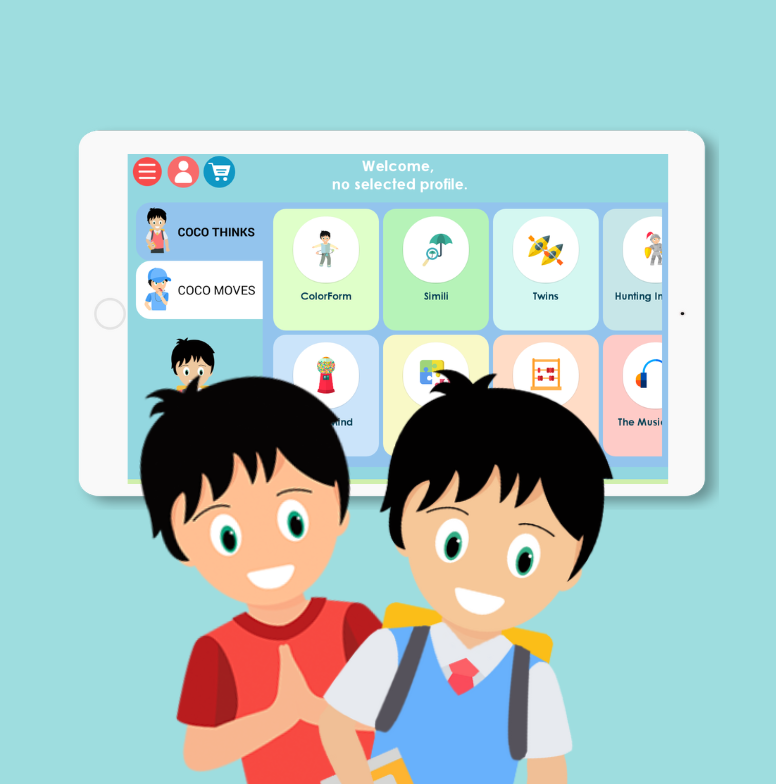
CLINT
A version for adults and seniors in prevention
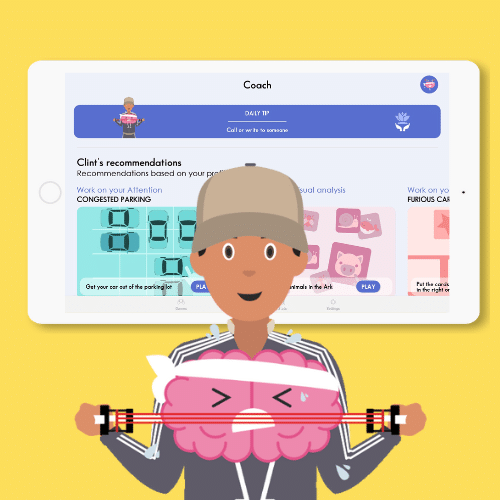
SCARLETT
An easy and adapted version for seniors
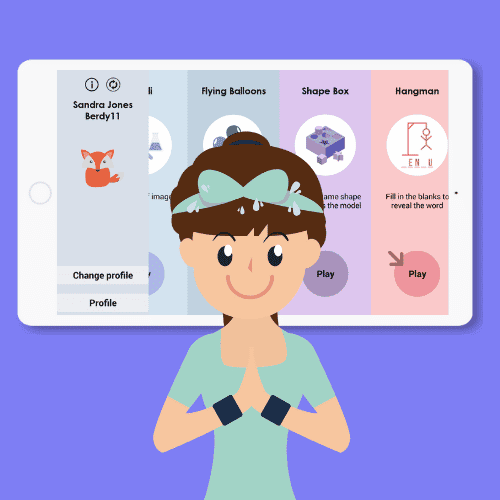
-
Involving family and friends
Relatives play an essential role in managing memory disorders. They can provide emotional support, help with planning and organization, and encourage people with memory disorders to take part in stimulating activities.

Memory disorders can be a source of concern, but with the right care, it’s possible to improve cognitive abilities and better manage these difficulties on a day-to-day basis.
Speech therapy offers a specific approach to assessing and treating memory disorders, using rehabilitation techniques tailored to individual needs. Combined with day-to-day management strategies, it’s possible to live a more fulfilling life despite these challenges. Don’t hesitate to consult a qualified healthcare professional for personalized advice and recommendations tailored to your situation.
Other articles that might interest you:
Supporting children with autism
Dynseo proposesSUPPORTING CHILDREN WITH AUTISM with COCO THINKS AND COCO MOVESDynseo and its team are very much...
Supporting DYS children with COCO THINKS and COCO MOVES
Dynseo proposesDYS disorders with COCO THINKS and COCO MOVESOur educational and pedagogical games program COCO THINKS...
Language development
Children communicate from birth with movements, crying, looking at each other or with smiles. After only a few months,...
Supporting children with Down Syndrome with Coco
Dynseo proposesDOWN SYNDROME with COCODown syndrome is a non-hereditary chromosomal abnormality that leads to the...
Supporting people after a stroke
Dynseo proposesStroke with CLINT, your brain training coachThe Dynseo team is very involved in helping people who have...
Supporting someone with Alzheimer’s
In this guide, we will detail how SCARLETT can be used for supporting someone with Alzheimer's. SCARLETT is a...
10 myths about the human brain you didn’t know
The brain is an incredible muscle, however there are many things we do not know, and what we do know is not always...
Using Digital Tools to Support Students with Special Educational Needs
Special Educational Needs (SEN) encompass a wide range of learning difficulties and disabilities that can hinder a...
Down Syndrome and Communication: Facilitating Interaction with Visual and Interactive Supports
When we think about Down syndrome, we often recognize it as a genetic condition that affects physical and cognitive...
How to Track Progress in People with Down Syndrome Using Digital Tools
Down syndrome, a genetic condition caused by the presence of an extra chromosome 21, affects approximately 1 in every...


